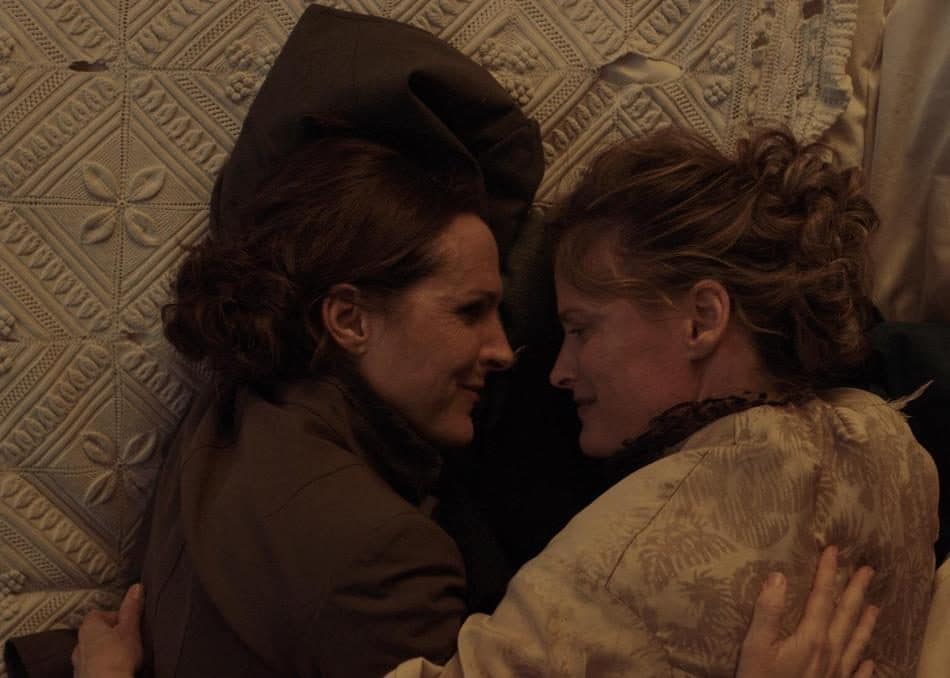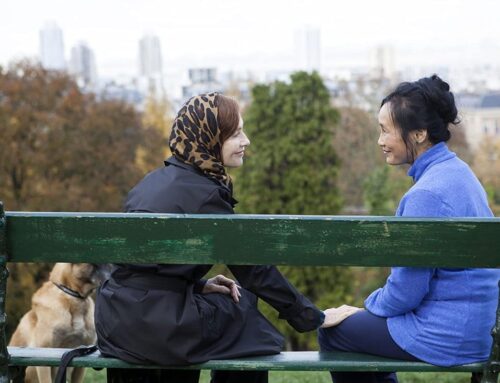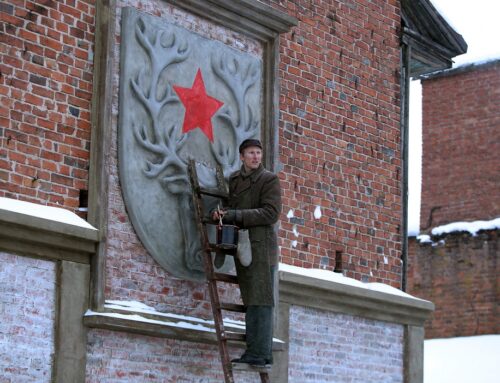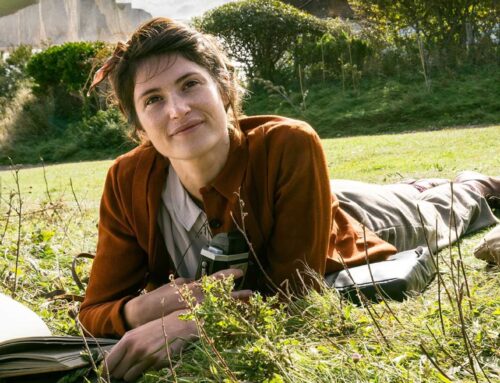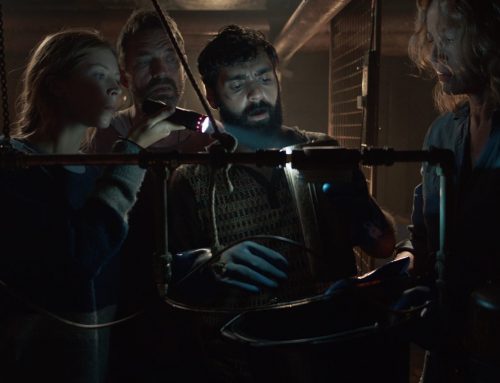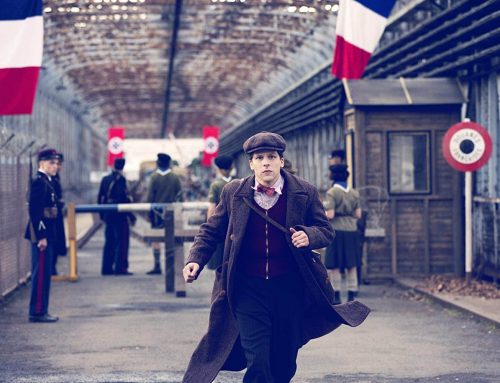Recounting lesser-known events and their reasons for obscurity in the life of Massachusetts poet Emily Dickinson (Molly Shannon), Wild Nights With Emily takes a few less than conventional approaches.
Centred on a lesbian relationship and Dickinson’s own much-studied letters, Director Madeleine Olnek for large measure adopts a style of storytelling ever-conscious that the events which transpire are, as they are of course, being staged. Linking traditional dramatic sequences with front-facing character vignettes, the camera is too placed in such stasis that it draws uncommon attention to a performer’s entry or exit from a scene, or their presence therein.
Pivoting at times to a later speech to a crowd extolling on Dickinson’s life and work, this innovation, sparingly used and at odds with a film best when relaying it’s central relationship and ensuing challenges through traditional dramatic form (not least of all due to the film’s talented lead), does not gel comparatively well.
Adopting yet another measure to convey it’s story, sections from Dickinson’s output are read out loud or imparted to us between or during key sequences; a better and uncommon advent here executed with evident cast-wide enthusiasm and reverence that Wild Nights With Emily could have done just as well to render more regularly throughout.
The cast clearly relishing the period setting and surrounds, what was apparently an enjoyable shoot has lead to that both duly comic as characters fret about 19th century northern America and very moving as we come to learn of the indignities our central figure suffered both during and following her life. Dealing with matters intendedly the focus of these filmmakers’ historiographic reckoning and clearly a subject in which it’s creatives have strongly invested themselves, Wild Nights With Emily, in spite of it’s uneven storytelling, is an illustrative and frequently entertaining biopic.
Wild Nights With Emily screens as part of the Queer Screen – Mardi Gras Film Festival
on Falkenscreen


